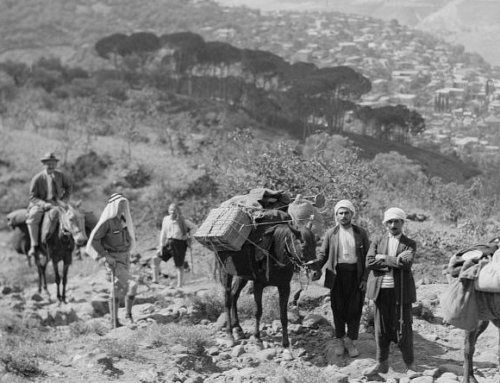“And Jesus said to his disciples, ‘Truly, I say to you, it will be hard for a rich man to enter the kingdom of heaven. Again I tell you, it is easier for a camel to go through the eye of a needle than for a rich man to enter the kingdom of God.’” – Mt 19:23-24
What does Jesus have against the rich? After hearing these verses, it might seem like a fair question. To understand the heart of the matter, I would like to propose that the better question is: Why is poverty good for us?
It is not because riches are always evil or because material poverty is something good in itself. Rather, it is because the experience of poverty can help us to understand a simple truth: who we are in relation to God—a person unable to earn his love.
We all have within ourselves a voracious and unstoppable desire to be loved. Just as a drowning man desperately and forcefully bursts towards the surface of the water to get a breath of air, so too do we desperately and forcefully seek in our lives assurances that we are worthy of love. What the Incarnation, Crucifixion, and Resurrection teach us is that God reaches out in love even more forcefully than we reach for love. The great drama of life is accepting that his love is strong enough, secure enough, and effective enough to meet the desire he has placed in us.
In this regard, riches can constitute a great temptation. Riches are often the result of having accomplished great things in life. We can, therefore, be tempted to base our own self-worth from these accomplishments. We can point to many instances in our life, saying “See, this is something that I have done well, that I have accomplished!” The temptation is to take delight in ourselves because of ourselves, to feel we have earned God’s love or, even worse, don’t need it at all.
On the other hand, one who is poor, whose life has never amounted to much, and perhaps does not have any good things to show for himself knows that he has done nothing to make himself worthy of God’s love. In other words, the poor man is more easily poor in spirit. A beggar in life, he is also a beggar before God.
The poor, then, may more easily enter the kingdom of God because, without the enchantment of wealth, their estimation of the world is more sober. Their hearts are more open to God’s grace because they have a truer understanding of reality.
And in reality, no one can come before God except as a beggar. Absolutely everything we have—even life itself—we could lose in a moment. Even the most successful person is still vulnerable to tragedy, to sudden death. “No one can buy life unending, nor avoid coming to the grave,” the Psalmist says. “In his riches, man does not endure” (Ps 49:10, 13).
If this is true, although God does not call us all to be materially poor, he does call us all to a certain kind of poverty: letting go of the earthly things in which we try to find our self-worth and earn God’s love. This is nothing else than admitting the facts of the situation. Just as a beggar has realized he is not able to earn his own dinner, so too the spiritually poor have realized they are not able to earn God’s love.
The great challenge God puts before us, then, is this: Daring to admit that God is a lover of the poor. That he will fill the barren places of our hearts even when we don’t deserve it. And that we are valuable and loveable not because of what we do for God but because of what God has done for us.
✠
Photo by Steve Mushero







